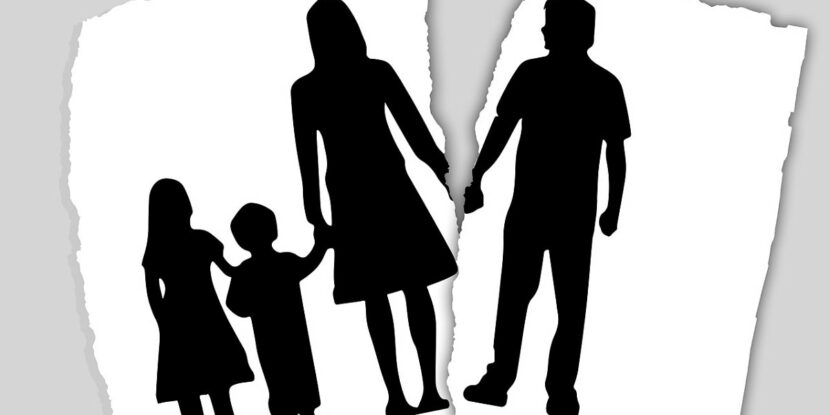This article began as a discussion of the effects of fatherlessness on our education system. But then, before the ideas had even taken shape, Nikolas Cruz walked into a school in Parkland, Fla., and killed 17 students and faculty. Cruz wasn’t targeting specific people. His actions were nothing more than random violence perpetrated for reasons about which we can only speculate, but the usual squabble over guns and gun rights is in full-blown talking-point mode. What’s obvious, though, is that things are going horribly wrong for children in our society, and unless we are willing to talk about the root cause — a culture of fatherlessness — our most precious natural resource will continue to be emotionally, spiritually, and physically broken.
In America today, twenty-four million kids live without their biological father in the home. In 1960, approximately one out of every 13 children lived without their biological father. Today, that number has decreased to one out of every three children in the United States. The statistics are damning and lead to one conclusion: our nation is facing an epidemic of family instability, impermanence, and fatherlessness, the effects of which impact every aspect of a child’s social, emotional, and spiritual development. The National Fatherhood Initiative refers to this as the “father factor.”
Research across the board shows that children raised in father-absent homes are more likely to:
- Have behavioral problems;
- Face abuse and neglect;
- Abuse drugs and alcohol;
- Commit crimes; and,
- Go to prison.
These kids are also four times more likely to live in poverty, two times more likely to drop out of school, and seven times more likely to become pregnant, than children from intact families.
There is no shortage of research to support these findings, although obvioiusly a shortage of space in which to discuss them. In a nutshell, however: 39.3 percent of single-mother families live in poverty, as compared to 8.8 percent of father-present families; an estimated 65.4 percent of single-mother families would leave poverty if marriage rates returned to 1971 levels; children from father-absent homes are more likely to be truant from school, more likely to be excluded from school, and more likely to leave school at age 16; currently, only 17 percent of black teenagers reach age 17 in a family with both their biological parents married; father-absent children are consistently overrepresented on a wide range of mental health problems, including depression, anxiety, and suicide, as well as exhibiting increased difficulties with social adjustment, problems with friendships, and the manifestation of behavior problems; and, individuals from father-absent homes were found to be 279 percent more likely to carry guns and deal drugs than peers living with their fathers.
There is no other factor that correlates more strongly with these social issues than fatherlessness. As author David Blankenhorn wrote in his book Fatherless America, the crisis of fatherless children may be “the most harmful demographic trend of our generation.”
Yet when we read about school shootings, we blame guns. When another young person dies of a drug overdose, we blame Big Pharma. In debates about the school-to-prison pipeline, we blame racism. We have yet to, in any serious way, discuss the connection between societal ills and fatherlessness. Then again, if we talked about fatherlessness, we would also have to talk about destructive feminism.
The demonization of men is deeply rooted in radical feminism and Marxism. Mallory Millet, whose sister, Kate, was a founding member of the National Organization of Women (NOW), described one of the earliest meetings she attended at her sister’s invitation. To summarize, the radicals in attendance had one goal in mind — to begin a cultural revolution that destroyed the American family and the American patriarch. These women, and the cacophany of shrill voices that have followed, have explained away men, and subsequently fathers, for more than two generations. They have preached the superflouousness of men, husbands, and fathers despite all research to the contrary, and they won’t stop at simply vilifying fatherhood. Radical feminists want to eradicate fathers and husbands regardless of the carnage they beset on the children. Robin Morgan, a feminist activist and writer, stated it quite clearly, “We can’t destroy the inequities between men and women until we destroy marriage.”
In their agenda to destroy marriage, radical feminists and leftists have unleashed a firestorm of societal ills; a culture of crime, poverty, illiteracy, addiction, and illegitimacy. The resulting challenge they have left us with is daunting. In order to be the successful experiment in freedom that America was originally founded to be, our communities need to bring fathers back into the fold. Radical feminism needs to be replaced with a comprehensive understanding of the importance fathers wield in child-rearing. And, more than anything, we need to re-establish the importance of intact families — where wives belong to husbands and husbands to wives, and children are raised with a sense of belonging rather than rejection. That’s what children need more than anything else we can give them.
So when the next Nikolas Cruz walks into a school, or mall, or movie theater (and there will be another Nikolas Cruz if we continue to ignore our collapsing family structure), ask his father what went wrong. That is, if you can find him.


